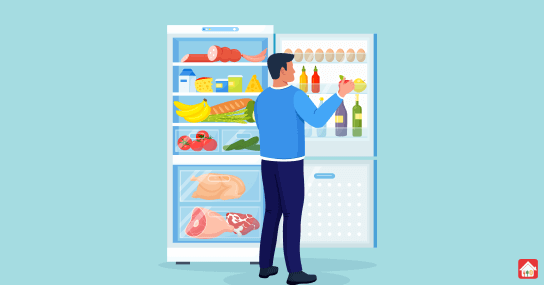Table of Contents
Meal planning is a strategy that helps you eat healthily, save time and even lose weight. It can be challenging to start. We will explain what meal planning is and what it involves. And we’ll show you how to create a healthy weekly menu plan.
What is Meal Planning?
This is a way to decide what to eat over the next week. Then, you must break down the ingredients required to make those meals. Finally, you’ll go out to purchase food. This sounds much easier when broken down into smaller steps. Even a pre-made meal plan is used to start. You can use meal planning to help you stick to a budget and follow a particular diet (e.g., vegetarian or gluten-free). You can lose weight or eat healthier.
Steps to a Successful Meal Planning
Let’s now look at the benefits of meal planning. These steps will make meal planning easy!
Choose your Style of Meal Planning
People plan what meals they will cook and eat each week and then use this information to create a grocery list. Others cook and portion out their meals using meal prep containers. This allows for limited cooking throughout the week. Others may find it a mixture of both!
You can choose the method that best suits you. The whole point of meal planning is to plan your week’s meals. You can either prep as little or as much as needed.
Ensure to Stock Up on Staples for your Fridge and Pantry

It makes meal planning much easier and less daunting if you have essential ingredients in your fridge and pantry. The initial investment may seem high if you have few ingredients. But once you have the vital components, creating recipes and grocery lists will be easier.
Equip your Kitchen
You are successful if you have the right equipment; preparing and storing meals can be more accessible. Proper kitchen equipment includes everything, from pans and knives to storage bags and containers.
Plan a Shopping and Planning Day
Due to time constraints, usually people do shopping and planning on Sunday. However, it find easier to plan on Saturday than to shop on Sunday. Find the day that works for you. These days will dictate the meals and days you plan. You will have to plan and shop for meals on different days, but consistency are an excellent way to make meal planning part of your weekly routine.
Plan your Week and then Evaluate the Results
Now it’s time for you to start meal planning. Consider the week ahead: early morning meetings, Friday lunch out with coworkers, evening soccer practice, and other such things. Notify any event that might affect your ability or time to cook. You might need a Crockpot or no-cook dinner after a long night out.
Choose the Meals that you would like to Prepare

Meal planning is different for everyone. It would help to decide how many out-of-home meals you’ll cook each week. These will depend on your lifestyle and schedule. Many people prefer to spend their energy on dinner. You can also use leftovers from dinner to make delicious lunches.
Depending on the size of your family, you might need to prepare multiple lunches. Are you a parent who packs lunch for your kids? Are you a lunch-taker at work? Lunches are made with sandwiches, wraps, and salads. Simple snacks and breakfasts are made. Whole-grain toast with peanut butter, fresh fruit, and whole-grain bread is easy to make and a great way to start your day. Make your breakfast items by creating them in bulk. You can freeze muffins, energy bites, and pancakes overnight.
You don’t need to prepare snacks; you can use fresh fruits, vegetables, yogurt, cheese, and hummus. Trail mix and granola, which can be made at home, are quick recipes for several weeks.
Choose your Favorite Recipes
Before you start looking for recipes, it’s a good idea to note any frozen or refrigerated ingredients you have. This is especially important if they are short-term. After you’ve decided which components you want in your meal plan, you can start looking for recipes.
Side dishes are also essential! Side dishes like salads and roasted vegetables are our favorites. Choose recipes you can cook in the time that you have. These could be classic recipes you already know or ideas, depending on how easy it is to prepare them. Consider using the same household favorites you use often and then adding a new or different recipe once or twice weekly. Varieties of cuisine and protein are possible.
Multifunctional recipes can make meal planning easier. A black bean corn salad is made into a quesadilla, tossed with greens, and served in a burrito bowl filled with whole grains, vegetables, and other goodies. Remember that you don’t have to eat the same dish multiple times a week.
Make a Grocery List and Start Shopping

Make a list of all the ingredients that you will need for the meals you plan to make. Next, arrange them according to the layout of your grocery store. Next, choose which ingredients and recipes to prepare. Are you more inclined to chop a whole head of cauliflower, or do florets appeal? Are you looking to save time and cook an entire bird?
Even if you’ve already taken inventory of all the ingredients in your kitchen, it’s a good idea to go back to the fridge or pantry to ensure you remember everything before heading to the grocery store. When you get to the grocery store, stick to your list but are flexible. You can take advantage of specials and sales that could lower your grocery bill.
Prep Sunday or Any Other Day
Although this step is optional, we assume you are busy and would benefit from some prepping. You decide how much time to give up based on your family’s needs. We make large quantities of beans, snacks, sauces, and breakfast foods on Sundays. Some people prefer to prepare all their meals for the week. Be aware of shelf life. Some foods may only be able to maintain their quality for a week.
Be flexible, But Follow your Plan
You want to follow your plan after all the hard work. However, there will be days when things happen that are not planned or when you feel like you need to do what you had planned.
Summary
Planning meals involves planning your weekly menu. This can help reduce stress and save you time by letting go of all the decisions about food. Preparing your meals can help you stick to healthy eating habits. You may feel less inclined to order take-out or drive-thru pizza after a long day. Set aside time during the week for your meals to be selected, as well as the purchase of the necessary ingredients and preparation of a few items. You can keep track of your recipes and meals in an app or write them down on paper. You can organize your meals by labeling clear containers with the food item’s name and the purchase date.


